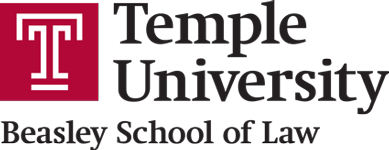On January 18th, the Institute for International Law and Public Policy had the honor of hosting Professor Jeremy Levitt, Distinguished Professor of International Law at Florida A&M College of Law, who gave a talk entitled “Beyond Borders: Martin Luther King, Jr., Africa, and Pan Africanism.” Prior to teaching at FAMU, Professor Levitt served as the Fulbright Visiting Research Chair in Human Rights and Social Justice at the Human Rights Research and Education Center at the University of Ottawa and was appointed to serve as the Head of the International Technical Head of the International Technical Advisory Committee of the Truth and Reconciliation Commission of the Republic of Liberia. An elected member of the American Law Institute and the Executive Council of the American Society of International Law, Professor Levitt is recognized as one of the world’s foremost authorities in the international law and politics of Africa, international human rights law, and peace and conflict studies. The talk, which coincided with the week of Dr. King’s birth, was co-hosted by the Black Law Students Association, the International Law Society, and the Temple International and Comparative Law Journal.
 In his talk, Professor Levitt shared both his research and research from one of his mentors, Temple Law Professor Henry Richardson. While most scholars frame Dr. King as a domestic civil rights leader, Professor Levitt spoke of King the internationalist and Pan Africanist. Linking several speeches made after Dr. King’s 1957 trip to Ghana, Professor Levitt argued that the Pan African anti-colonial movement strongly influenced King’s civil rights activism in the United States. His activism finds its roots not only in events in the United States, but also events in Ghana, Nigeria, and apartheid South Africa. He was not merely an American civil rights leader, but a Pan Africanist and an internationalist who criticized aggression in Vietnam, encouraged black immigration to Africa, and advocated for global human rights. Professor Levitt labels King’s particular brand of Pan Africanism as “beloved Pan-Africanism”—a unique blend of the Black Christian tradition, anti-colonialism, anti-militarism, radical non-violent direct action, and international human rights.
In his talk, Professor Levitt shared both his research and research from one of his mentors, Temple Law Professor Henry Richardson. While most scholars frame Dr. King as a domestic civil rights leader, Professor Levitt spoke of King the internationalist and Pan Africanist. Linking several speeches made after Dr. King’s 1957 trip to Ghana, Professor Levitt argued that the Pan African anti-colonial movement strongly influenced King’s civil rights activism in the United States. His activism finds its roots not only in events in the United States, but also events in Ghana, Nigeria, and apartheid South Africa. He was not merely an American civil rights leader, but a Pan Africanist and an internationalist who criticized aggression in Vietnam, encouraged black immigration to Africa, and advocated for global human rights. Professor Levitt labels King’s particular brand of Pan Africanism as “beloved Pan-Africanism”—a unique blend of the Black Christian tradition, anti-colonialism, anti-militarism, radical non-violent direct action, and international human rights.
Professor Levitt also spoke of how Dr. King inspired African Americans to become involved in the Pan-African and black international movement. While many civil rights leaders espoused nativist sentiments and urged the American government to focus on problems at home, King wondered how one could support equal access to justice in the United States while ignoring oppressive regimes abroad. Professor Levitt also connected these sentiments and critiques to challenges facing Americans today. In a powerful closing, he quoted from Dr. King’s 1957 Birth of a New Nation speech:
Ghana has something to say to us. It says to us first, that the oppressor never voluntarily gives freedom to the oppressed. You have to work for it. And if Nkrumah and the people of the Gold Coast had not stood up persistently, revolting against the system, it would still be a colony of the British Empire. Freedom is never given to anybody. For the oppressor has you in domination because he plans to keep you there, and he never voluntarily gives it up. And that is where the strong resistance comes. Privileged classes never give up their privileges without strong resistance.
 At the conclusion of the event, Professor Levitt remained at Temple to engage with groups of students in discussions about Dr. King’s legacy, his particular brand of Pan-Africanism, and his effect on international law. The talk on which his speech was based will be published in Volume 31(1) of the Temple International and Comparative Law Journal, a symposium issue in the form of a festschrift celebrating the life and work of Prof. Henry J. Richardson III.
At the conclusion of the event, Professor Levitt remained at Temple to engage with groups of students in discussions about Dr. King’s legacy, his particular brand of Pan-Africanism, and his effect on international law. The talk on which his speech was based will be published in Volume 31(1) of the Temple International and Comparative Law Journal, a symposium issue in the form of a festschrift celebrating the life and work of Prof. Henry J. Richardson III.


